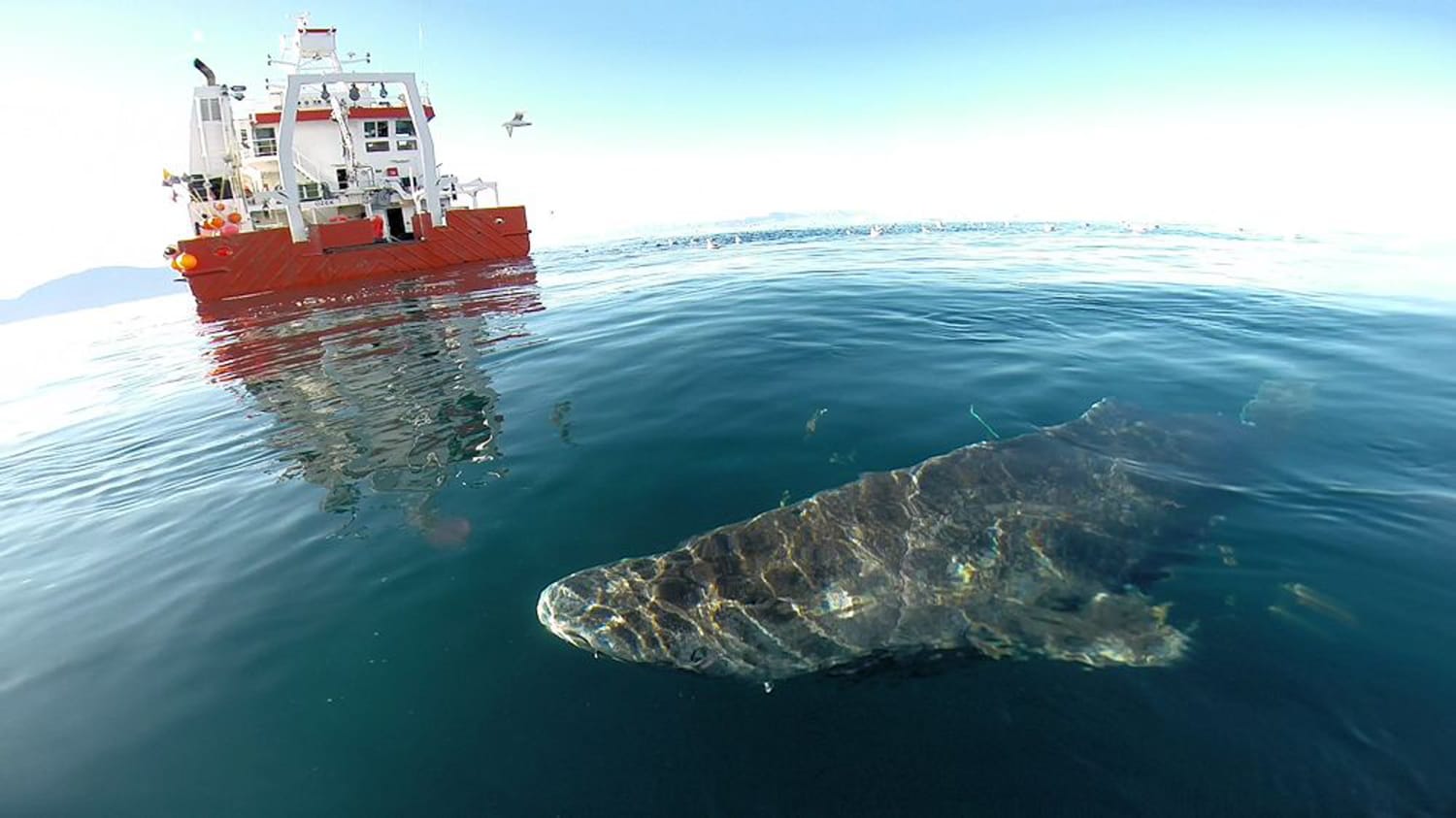Imagine a world where a single creature has lived through the rise of the Mughal Empire, the Industrial Revolution, and the Space Age—without even knowing it. Sounds like something out of a fantasy novel, right? But this isn’t fiction. Meet the Greenland shark, a mysterious deep-sea giant that could be as old as 500 years!
Yes, you read that right. Five centuries. That means some of these sharks were already swimming in the icy waters of the Arctic when the Taj Mahal wasn’t even built yet!
The Timeless Traveler of the Deep
The Greenland shark (Somniosus microcephalus) holds the record for the longest lifespan of any known vertebrate. Scientists estimate that these sharks live between 250 and 500 years, making them nature’s ultimate time travelers.
Unlike their speedy, predatory cousins like the great white, these ancient swimmers take life at a much slower pace. And that might just be the secret to their extraordinary longevity.

What Makes the Greenland Shark Live So Long?
🔹 Slow and Steady Wins the Race – These sharks have an incredibly slow metabolism due to the freezing Arctic waters. This means they use less energy, age more slowly, and experience fewer cell-damaging processes.
🔹 Late Bloomers of the Ocean – While most creatures hit adulthood in a few years, Greenland sharks don’t even reach maturity until they’re around 150 years old! Imagine being a teenager for over a century!
🔹 Deep, Dark, and Safe – Living at depths of up to 2,200 meters, these sharks avoid predators, human interference, and environmental dangers, which helps extend their lifespan.
Who Else Lives This Long?
Though the Greenland shark is the longest-living vertebrate, a few other creatures give it some competition in the lifespan game:

🐚 Ocean Quahog Clam – A deep-sea clam named Ming was discovered to be 507 years old, making it one of the longest-living animals ever recorded.
🐋 Bowhead Whale – These Arctic giants can live over 200 years, with some even found with ancient harpoon fragments from the 19th century embedded in their skin!
What Can Humans Learn from the Greenland Shark?
The mystery of aging is something scientists have been trying to crack for centuries, and Greenland sharks might hold some clues. By studying their slow biological processes, researchers hope to uncover:
🔬 New insights into human longevity – Could their unique biology reveal secrets about slowing down aging in humans?
🦠 Better treatments for age-related diseases – Understanding how their bodies resist aging-related damage might help in developing medicines for humans.
🌍 How to adapt to extreme environments – These sharks thrive in one of the harshest environments on Earth. Learning from them could inspire new survival strategies for extreme climates, even space exploration!
But Are These Sharks in Danger?

Despite their impressive lifespans, Greenland sharks face threats from climate change and human activities:
⚠️ Slow reproduction – Because they take over a century to mature, their populations recover very slowly if they decline.
🌡️ Climate change & warming oceans – Rising temperatures could disrupt their deep-sea habitats and food sources.
🚢 Bycatch & fishing industry threats – Though not targeted often, these sharks sometimes get caught in fishing nets unintentionally.
A Living Legend of the Ocean
The Greenland shark is more than just a biological marvel—it’s a living relic from another time. If these sharks could talk, imagine the history they’d have witnessed!
So the next time you think about long life, resilience, and survival, remember that somewhere deep in the Arctic waters, a 500-year-old shark is still swimming, undisturbed, through the pages of history.
💭 What do you think? Could humans ever live this long? Drop your thoughts in the comments!







